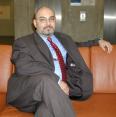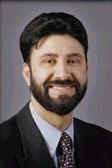Events
Launch event of the Romani Project Website
Statements of Support
Press Coverage
Statements of support
- Statement by Mr Emyr Lewis, UK Representative on the European Commission for Minority and Regional Language (Play message - 16 MB).
- Statement by Professor Katharine Perera, former Senior Pro-Vice-Chancellor of the Victoria University of Manchester (Play message - 28 MB).
- Statement by Mr Rudko Kawczynski, President of the European Roma and Traveller Forum
 On behalf of the European Roma and Traveller Forum I would like to express my support for
the Romani language project at the University of Manchester.
On behalf of the European Roma and Traveller Forum I would like to express my support for
the Romani language project at the University of Manchester.
For many centuries, our people have been the subject of observation and investigation, by authorities and by individuals, whose intention was to get to know our culture and our habits, in order to control our movements and to limit our freedoms. Antigypsyism of this kind was and is present not only among extremists, but also within the mainstream of every European society, and this includes also society's academics, researchers, and teachers.
For this reason, it is so important that academic research into our culture, our history, and our language should explore new and unconventional roads: It must, first of all, respect our people and our right for self-determination and self-representation. It should inform and enlighten, and not try to control. It should help our people feel aware and proud of their heritage, and it should help our culture and language occupy the place that they deserve in the mosaic of European cultures. It should help us train our people to become academic researchers, so that they can become active defenders of our culture, and not just passive objects of investigation.
The European Roma and Traveller Forum is the first democratically elected, representative body of the Roma. It speaks on behalf of Roma in 42 European countries, and has consultative status at the Council of Europe. Our aim is to empower our people to protect their identity, their human and civil rights, and their culture and traditions. Language is at the heart of those traditions. Language is a symbol of our unity and of our origins. At the same time, the differences between our dialects demonstrate our own pluralism and our tolerance of the various Roma groups.
We welcome the efforts of Professor Yaron Matras and his team to study the origins and history of our language. From our side, we will do whatever we can to support this research, and we hope that it will help us expand our network of culture and education activities, and inform our own people and others about who we are.
I am sorry that I cannot participate in today’s event personally. I have been invited to visit our people in Kosovo, who need our urgent support. I hope to be able to visit Manchester at another opportunity, soon, and to meet with the project team, and with the Romani students who work on it, and with the Romani community of Manchester.
In the meantime, I wish the project and the team much success in their work!
- Statement by the Lord Mayor of Manchester: Councillor Mohammed Afzal Khan
 Manchester is a multicultural city. It hosts a pluralism of traditions and customs, and a variety
of languages. Manchester is committed to reaching out to all its ethnic and linguistic groups. We
try to raise awareness of languages. We do our best to provide information services in various
languages. And we try to encourage groups to promote their own languages through community education
and cultural events.
Manchester is a multicultural city. It hosts a pluralism of traditions and customs, and a variety
of languages. Manchester is committed to reaching out to all its ethnic and linguistic groups. We
try to raise awareness of languages. We do our best to provide information services in various
languages. And we try to encourage groups to promote their own languages through community education
and cultural events.
We are therefore very grateful for the work of the School of Languages, Linguistics and Cultures at the University of Manchester. Today’s launch of the Romani language website shows us how the School can provide a valuable service to the community. I am sure that members of the Romani community in and around Manchester are very proud to have their language on the agenda of such as esteemed research institution. And it gives us a chance to learn more about the ancient language and culture of the Roma.
The Romani minority is one of the oldest ethnic minorities in this country. Roma were among the first immigrants to this country, arriving in the fifteenth century. Our city has welcomed more Romani immigrants in the past few years, many of them from the countries that recently joined the European Union. We thus have not just one, but several Romani communities in the Manchester area. Yet few of us know much about them, or about their language and their heritage.
The University of Manchester’s new Romani website gives us an excellent opportunity to say how proud we are of the presence of a Romani community here in Manchester, and how committed we are to help them maintain their culture and their language.
I am sure that the website will make an important contribution to community relations. And I hope that many more such websites devoted to the other groups living in Manchester will follow. I would like to congratulate the University of Manchester and its researchers for this achievement.

